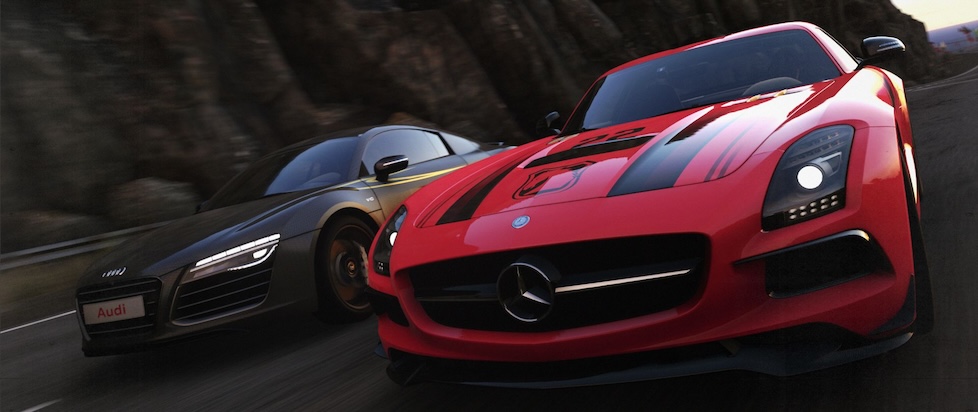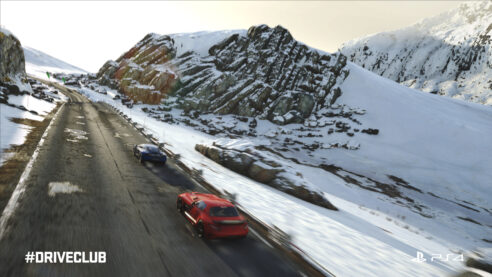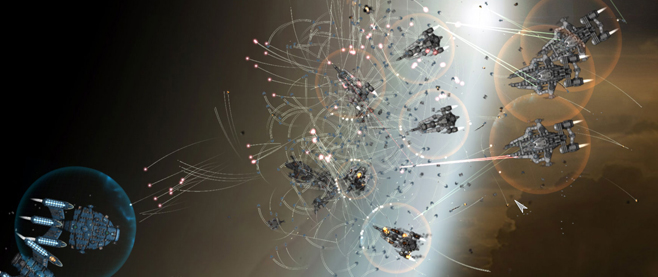
Driveclub Might Not Deserve Reverence, But It Should be Revisited
Despite its issues, I have been enjoying the current iteration of Forza Motorsport. The core gameplay of getting new cars, upgrading them over time and racing in gorgeous recreations of real world tracks, it’s almost enough to make me forgive the game for not having the soul that older Forza games used to have. Almost.
Compared to the entries released during the Xbox 360’s reign, the past few Forza Motorsports games released over the last 10 years feel like something intangible has gone missing, something that can’t be made up for with new car models or more racetracks. One key distinction that’s immediately noticeable is the different approach to soundtracks between the recent games and the older ones, as every Forza Motorsport since 2013 has had their own bespoke, orchestral soundtrack, while the games before used licensed music usually composed of rock, alternative and electronic music genres.
Now, this change does make financial sense considering that the Forza Horizon series now relies heavily on licensed music, and trying to keep two franchises’ worth of licensing fees going at the same time would be very costly. But the absence of what used to be there is still felt, as it’s transformed a musical atmosphere that used to encourage aggressive driving, into something more restrained, polite even (and that’s not exactly the kind of attitude I want to feel when I’m going toe-to-toe with an opponent at 100 mph). It’s made me wonder why Turn 10 studios hasn’t tried to do something similar to what Max Payne 3 did, which was commission a rock band to create an entire unique soundtrack just for the game, to at least imbue the newer titles with some of the character of the old ones. Why not get a group like Justice or Hybrid to compose a dozen tracks for a racing game? Good idea, right? And yeah the joke here is that 2014’s Driveclub did exactly that, and it’s a critical component as to why the PS4 arcade racer has become a cult classic in the decade following its release.
As the arcade racing genre has waned over the past console generation, older titles are being revisited and reevaluated. Burnout, Blur, even Driver: San Francisco; stuff from the 360 and PS3 generation are getting attention for how they feel like they’re not just from another time, but a better place where arcade racers were allowed to really experiment. Even the relatively newer Driveclub has developed a sort of reverence among PlayStation racing fans. Gran Turismo is still going relatively strong, but Driveclub remains unique as a singular entry, since the studio that made it was shuttered just a few years after it launched. While I do still feel for Evolution Studios, I will admit that I’m not someone who puts Driveclub on a pedestal, as it’s a racing game I respect more than genuinely like. For all the good ideas it had, it’s also a game whose shortcomings shouldn’t be overlooked.

Everyone points to the game’s rough launch being what killed Driveclub, but a year later its online issues were fixed, and it received a massive amount of post-launch content to make up for it. I’d say what really doomed Driveclub were the areas it felt like it cut corners, and made mistakes that so many other racing games make. Despite the impressive graphics, it was still a closed circuit, non-open world game that could only manage 30 frames per second on the PS4 (compared to the contemporary Forza Motorsports 5 and 6 at the time, both of which would reach 60 fps on the xbox one). An uninspired career mode made you feel like you were just checking boxes instead of meaningfully progressing and improving throughout the game. Its car customization did allow for a great deal of visual artistry, but lacked an upgrade system that could let the player tune their cars to go faster or handle better. Tracks were set in gorgeous locales, but used roads that were often so narrowly designed that the supposedly approachable arcade racer was surprisingly punishing of mistakes. And at the core was a handling model that I’d personally describe as “diabolical”, as it never really felt sure of what balance of realism to arcadey-ness it wanted to have. Driveclub’s cars would often feel and handle like you’d expect them to 80% of the time, but when taken to the limits of speed and hard cornering, they would often bite you on the hand, hit some weird topography on the track, and spin out.
Driveclub is still one of the most frustrating racing games I’ve ever played… and yet, it somehow also makes me wistful, as it’s a game I could see doing very well today if it had gotten a second chance. To me, the game’s presentation, its sense of style, is what would make it a welcome sight in today’s racing game landscape. Hybrid’s soundtrack not only still bangs, but licensed music is still the norm for most racing games; no one has really tried to replicate Driveclub’s approach to audio production. While the fictional racetracks in the game often had design issues, they still stand out a decade later due to their sense of scale, and being rooted in locations that real world racetracks couldn’t exist in. And even though Driveclub’s initial online issues do deserve a fair amount of blame, it’s a real shame that its online features no longer function at all considering its focus on a tight-knit club of racers challenging each other on a constant basis made it a live service game that wasn’t out to constantly suck money out of you.
If there’s one clear example that some of Driveclub’s ideas deserve some recognition however, it’s Forza Motorsport. One gameplay element that the current game has improved upon are its practice laps, something the older games all had, but was rarely rewarding to do unless you were a hardcore racer who really wanted to learn the track layout. Now, practice laps aren’t mandatory, but they’re finally rewarding as nailing the perfect line through a corner rewards you with XP points that you can use to buy parts with. That gameplay mechanic of following a line through a corner as best you can to get a highscore? Driveclub did that ten years ago, although back then it wasn’t as well executed as it could’ve been – the segment showed up randomly throughout the game, and half the time it asked you to drift through a corner instead of trying to drive through it cleanly for a good lap time. It was still a good idea though, and with some tweaking it transformed what had long been an afterthought in the Forza series, into something that now feels essential to getting the most out of the experience.
In a gaming landscape that feels increasingly averse to taking risks, flawed-but-ambitious failures like Driveclub deserve a second look now more than ever. Even a few of its good ideas could spruce up games that have gotten too used to taking the safe and familiar route.
———
Van Dennis is a film school graduate and now part time writer living in Portland OR. When he’s not writing about movies, TV or videogames, he spends too much time on twitter stressing out about the seattle mariners. You can follow him on Twitter or Bluesky.





